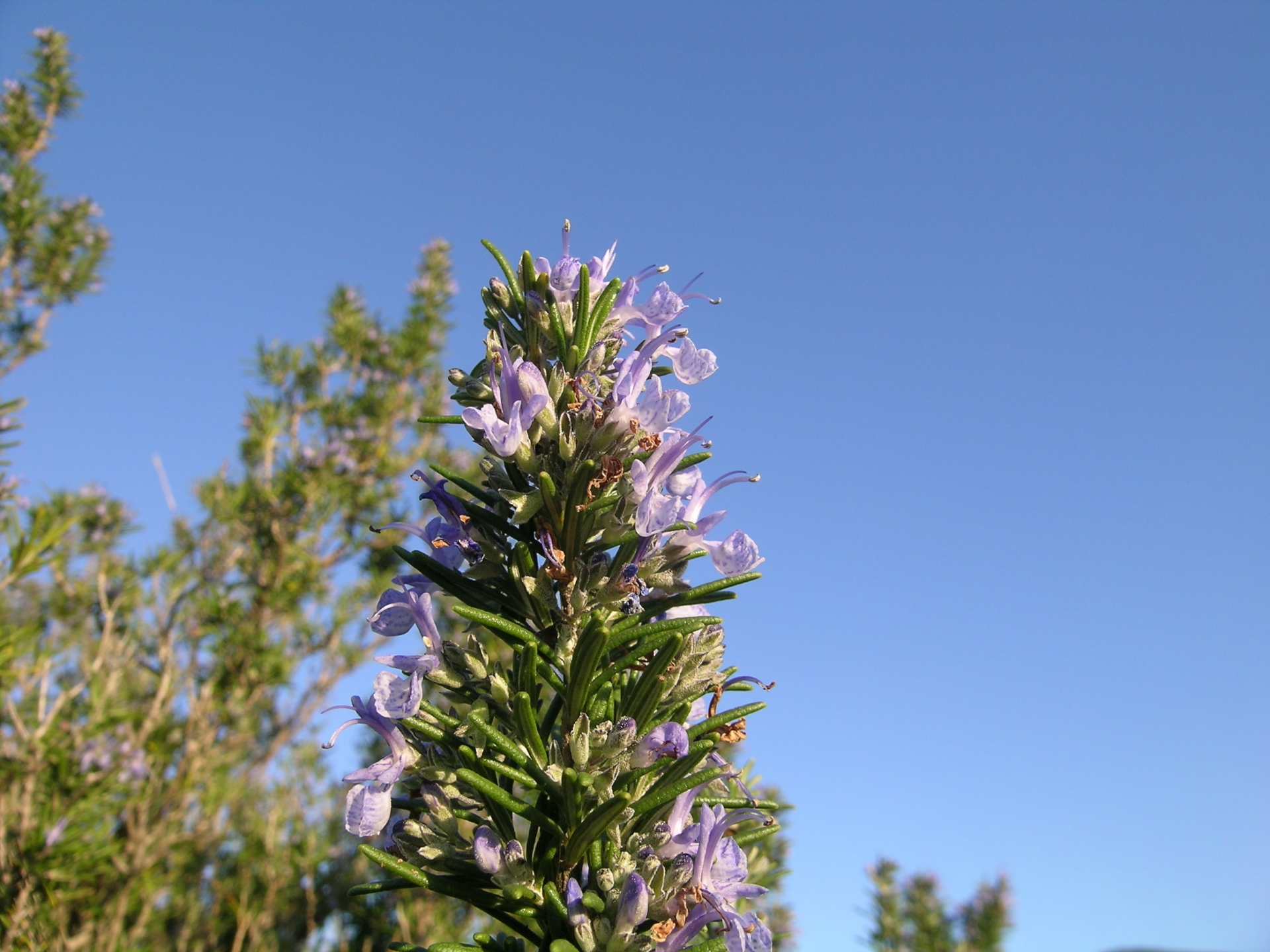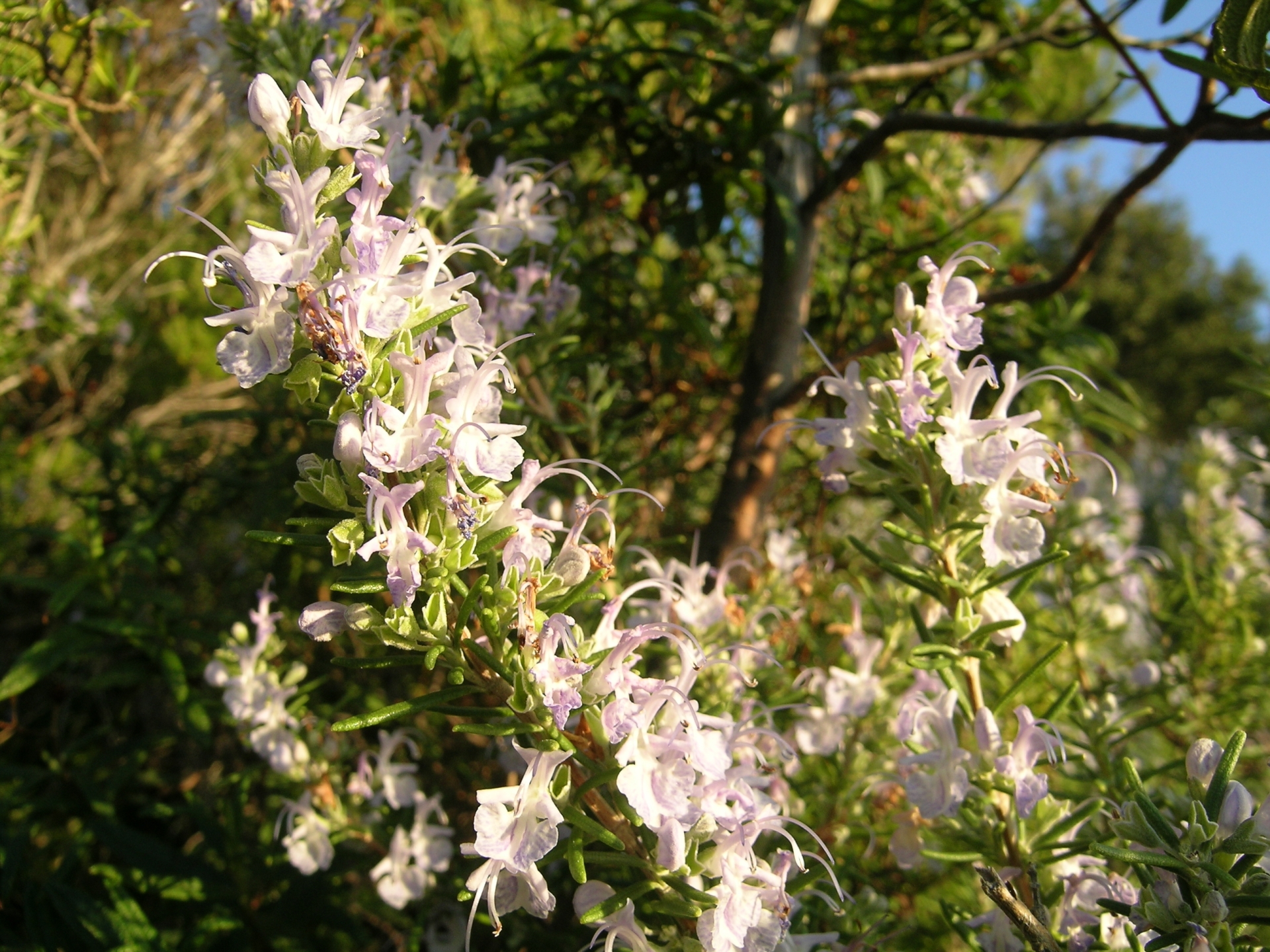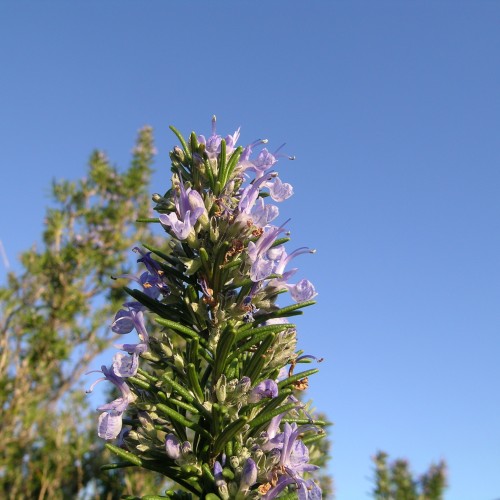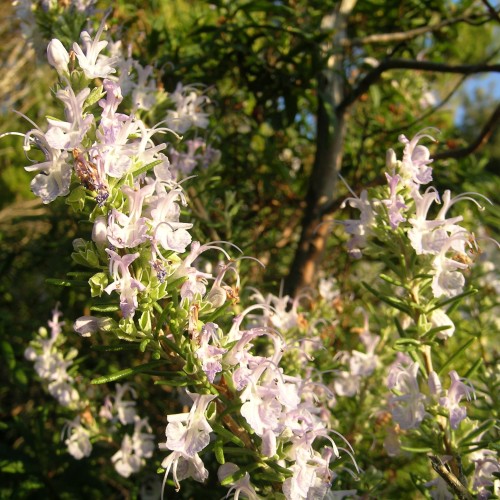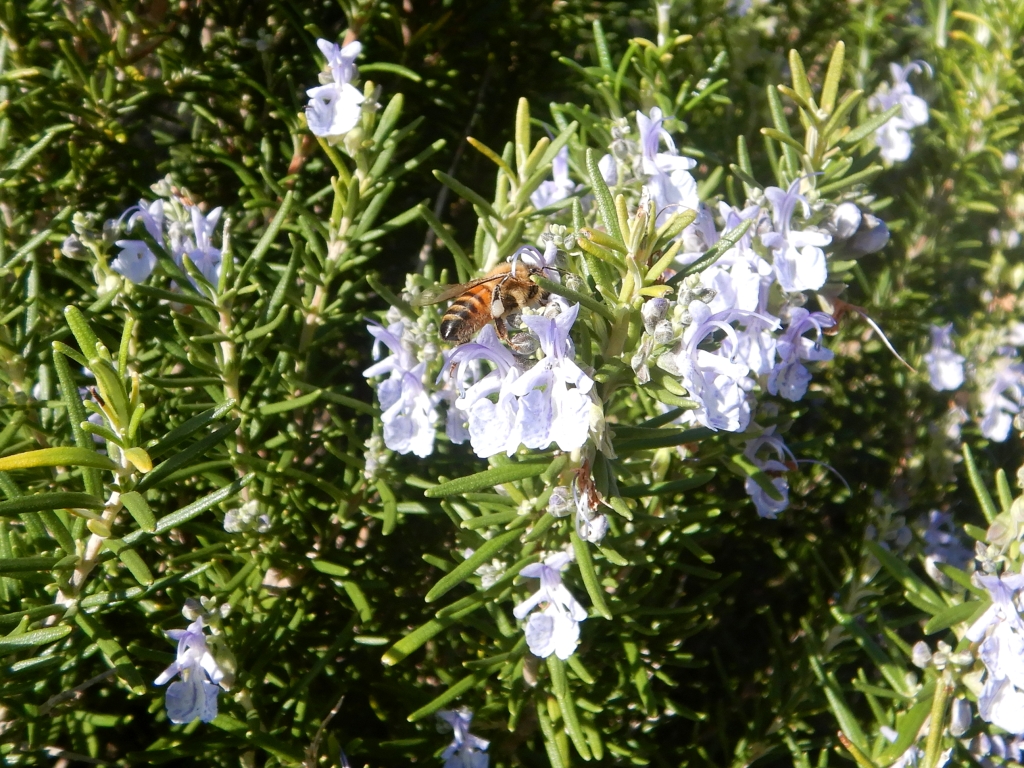
Also known in Tuscan dialect as ramerino, this plant is rich in essential oils and very aromatic, well-known to the ancient Mediterranean populations who cultivated it and used it for ceremonial and medicinal purposes. The Greeks burned its branches as incense and considered it sacred to Aphrodite. The Romans braided it into wreaths with laurel and myrtle in honour of the Lares, deities who protected the home.
Rosemary enjoyed a heyday in the Middle ages: cultivated in the hortus simplicium of convents and monasteries, it was one of the species best known to herbalists of the time. Indeed, the adjective officinalis, denoting the species, alludes to its use in the officium (workshop or pharmacy where medicines were prepared). Pharmacopeias teach us that this plant has flavouring, aperient, digestive, antispasmodic, diuretic, balsamic, antiseptic, rubefacient and stimulant properties. Studies conducted on Elba reveal that rosemary has long been used in local traditional medicine for treating a wide variety of ailments.
As a herbal tea, it is considered a diuretic and general anti-inflammatory for the whole body, a kidney purifier and a sleeping aid, particularly when combined with chamomile. A highly concentrated form of this same herbal tea was once used as a hair and body cleanser. Its leaves, in the form of steam inhalations, are excellent for curing colds and as a balsamic for the airways: dried on the stove, they would produce essential oils effective against asthma and bronchial catarrh. In eastern Elba, it was traditional to make them into cigarettes to be smoked for bronchodilatory, antispasmodic and chest decongestant purposes.
Use of this species as a flavouring in cooking, especially for meat and fish roasts, is also well known. Given its abundance on Elba, whole springs were traditionally used rather than just the leaves, brushing foods with a sprig of rosemary dipped in oil to allow the aroma to penetrate well. 'Ramerino' is good for roasting beef, veal, lamb, chicken and rabbit as well as fish such as mackerel, mullet and white fish, with garlic and chili pepper. Plenty of rosemary is also used for seasoning focaccia, known on Elba as schiaccia, and frying diced potatoes together with cloves of garlic. It is an excellent melliferous plant.

